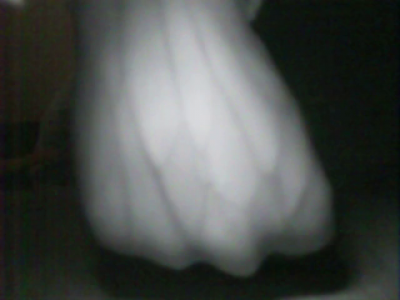Image Processing
Researchers are becoming increasingly interested in dorsal hand vein biometrics because of their characteristics. These characteristics can be summarized as follows: it does not need contact with the capture device, cannot be forged, does not change over time, and provides high accuracy. Recognition systems of the dorsal hand rely on how the collected images captured from the device are good. Near-infrared (NIR) light is used to distinguish veins from the back of the hand.
- Categories:
 1357 Views
1357 ViewsThe FLoRI21 dataset provides ultra-widefield fluorescein angiography (UWF FA) images for the development and evaluation of retinal image registration algorithms. Images are included across five subjects. For each subject, there is one montage FA image that serves as the common reference image for registration and a set of two or more individual ("raw") FA images (taken over multiple clinic visits) that are target images for registration. Overall, these constitute 15 reference-target image pairs for image registration.
- Categories:
 1609 Views
1609 Views
These simulated live cell microscopy sequences were generated by the CytoPacq web service https://cbia.fi.muni.cz/simulator [R1]. The dataset is composed of 51 2D sequences and 41 3D sequences. The 2D sequences are divided into distinct 44 training and 7 test sets. The 3D sequences are divided into distinct 34 training and 7 test sets. Each sequence contains up to 200 frames.
- Categories:
 310 Views
310 ViewsThe dataset contains UAV imagery and fracture interpretation of rock outcrops acquired in Praia das Conchas, Cabo Frio, Rio de Janeiro, Brazil. Along with georeferenced .geotiff images, the dataset contains filtered 500 x 500 .png tiles containing only scenes with fracture data, along with .png binary masks for semantic segmentation and original georeferenced shapefile annotations. This data can be useful for segmentation and extraction of geological structures from UAV imagery, for evaluating computer vision methodologies or machine learning techniques.
- Categories:
 563 Views
563 Views
Datasets for image and video aesthetics
1. Video Dataset : 107 videos
This dataset has videos that can be framed into images.
Color contrast,Depth of Field[DoF],Rule of Third[RoT] attributes
that affect aesthetics can be extracted from the video datasets.
2.Slow videos and Fast videos can be assessed for motion
affecting aesthetics
- Categories:
 282 Views
282 ViewsPlease cite the following paper when using this dataset:
N. Thakur, "Twitter Big Data as a Resource for Exoskeleton Research: A Large-Scale Dataset of about 140,000 Tweets from 2017–2022 and 100 Research Questions", Journal of Analytics, Volume 1, Issue 2, 2022, pp. 72-97, DOI: https://doi.org/10.3390/analytics1020007
Abstract
- Categories:
 2693 Views
2693 Views
In recent years, many unmanned retail stores have been introduced with the development
of computer vision, sensors and wireless technology. However, the trend has slowed due to the costs
associated with implementation. A vision-based kiosk, which is only equipped with a vision sensor, can
be a compact and affordable option. The vision-based kiosk detects a product via CNN-based object
detectors and performs instance-level classification by aggregating detections from multiple cameras.
- Categories:
 537 Views
537 Views
Computer vision and image processing have made significant progress in many real-world applications, including environmental monitoring and protection. Recent studies have shown that computer vision and image processing can be used to quantify water turbidity, a crucial physical parameter in water quality assessment. This paper presents a procedure to determine water turbidity using deep learning methods, specifically, convolutional neural network (CNN). At first, water samples were located inside a dark cabin before digital images of the samples were captured with a smartphone camera.
- Categories:
 1598 Views
1598 Views




